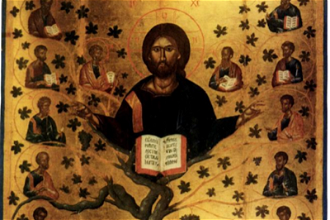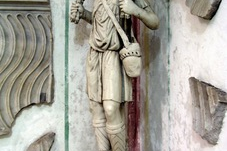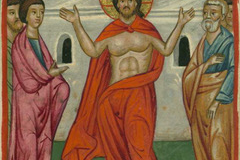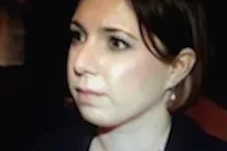Sunday Reflection with Fr Robin Gibbons: 21 November 2021
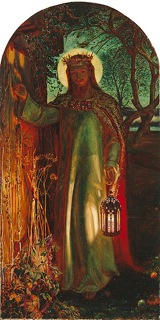
Feast of Christ the King
Each year that this feast comes around I find myself getting more and more uneasy about our representations of it. The fact that it isn't part of the scriptural cycle of feasts associated with the Lord. makes it a more difficult feast to analyze, in that it sits uneasily alongside those recognizable as theological festivals which carry with them a weight of tradition and custom.
Perhaps I am being too critical, but it does each of us good to sit back and examine what we believe about such a celebration. One way to start is to go back to the words we know about Jesus. One title that he carries is King of the Jews, In the NT Jesus is referred to as the King of the Jews (or Judeans), twice, at the beginning of his life and at the end. Each time they are used by gentiles, the Magi and Pontius Pilate, and each time use of the title leads to dramatic results in the New Testament accounts, maybe this should make us think harder?
In Matthew's nativity story, the Magi's use of that title, King of the Jews, leads directly to Herod's order to massacre the innocents, in all the passion narratives the title "King of the Jews" occurs in Jesus' dialogue with Pilate where it becomes a term of dispute and contention with the Jewish crowd who do not want it and brings down on Jesus mockery from the soldiers, all of which leads to charges that result in his death. He is only recorded as stating '"My kingdom is not of this world"(Jn 18 ;36) but never explicitly denies the term. Finally above his head on the cross is that inscription in three languages, which in Latin read IESVS NAZARENVS REX IVDÆORVM. Does this help us much,? It might make us think that Christ as King isn't going to be like any other?
There are other allusions to a kingly role in the NT, the name Christ itself is a royal title, and we accept scriptural allusions to a royal status for Jesus, yet the impression which we get from the scriptures, is as Jesus hints, that the role of a King such as he might be, is not to be confused with the power, prestige and honour accorded to those who rule in our world! Yet in Hebrews 8:1 it clearly says, "we have such a high priest, one who is seated at the right hand of the throne of the Majesty in heaven" and in the book of Revelation, at the end of all things, the Lamb, that gentle slain Lamb is the 'Lord of Lords and King of Kings' who 'On his robe and on his thigh he has this name written: king of kings and lord of lords.'(Rev 19:16) Whilst there is power, might, supreme authority, there is also something we cannot control present in our rather poor image of the Kingship expressed by Most High and of Jesus the Christ. Maybe that is as it should be, for it stops anybody else from claiming such a presence. But it also allows us to see that Kingship, the supreme position of God in Jesus cannot be as our desires or needs will it.
How? The answer is in the balances given us, this King Christ serves, this King Christ heals, this King Christ is endlessly patient, forgives seeks not revenge, and pours out on those who ask, mercy beyond mercy-and is eternal in his loving. If we seek Him, he bids us find him in the littlest, poorest, in the prisoner, the wounded, the leper,the outcast, in all that are needy and wanting. His song like Mary's is of those in power being pulled from their thrones, the mighty laid low, it is in the ballad of the Beatitudes, the framework of what we ourselves should be, for (and perhaps here is where we can finally end up), this Kingship is shared with us!
I leave you with an image from the pre-Raphaelites, of that painting by Holman Hunt 'The Light of the World', here is a real King, crowned with thorns, holding a lantern that lights a new way, a King Jesus sharing the world's suffering but leading us out into something new, he does this by knocking at the door of each ones heart, so that we may open it to the light of his love. That is a King I can deal with!
Lectio Divina
The Kings Who Came to Christ
Early Irish Poem
Three Kings came to the Babe's abode,
With faces that like bright moons glowed,
From out the learned Eastern world,
Where o'er wide plains slow streams are curled.
The three sought out the lovely Child,
On whom, white-blossomed Bethel smiled,
Three, o'er all knowledge granted sway,
Three Seers of the Vision they.
The Promise of the Great All-wise
Was present to their prescient eyes,
A Vision beckoning from afar,
The Christ Child cradled on a star;
A lofty star of lucent ray,
It swam before them through the day,
And when earth's hues were lost in night,
It still led on with loving light.
And still the lucky Royal Three
Went following it full readily;
And still across the firmament
An arch of blessed might it went.
So rushing radiant, round and soft,
Past every star that paced aloft,
Right joyously it stayed for them
At last o'er blessed Bethlehem.
O, then each Monarch of the Three
With worship fell upon his knee,
And gave, while God he loud extolled,
His frankincense and myrrh and gold.
They recognised the Babe's bright face
And Mary in her Virgin grace.
'Twas thus the Star's Epiphany
Showed Christ their King to the Kings three.



